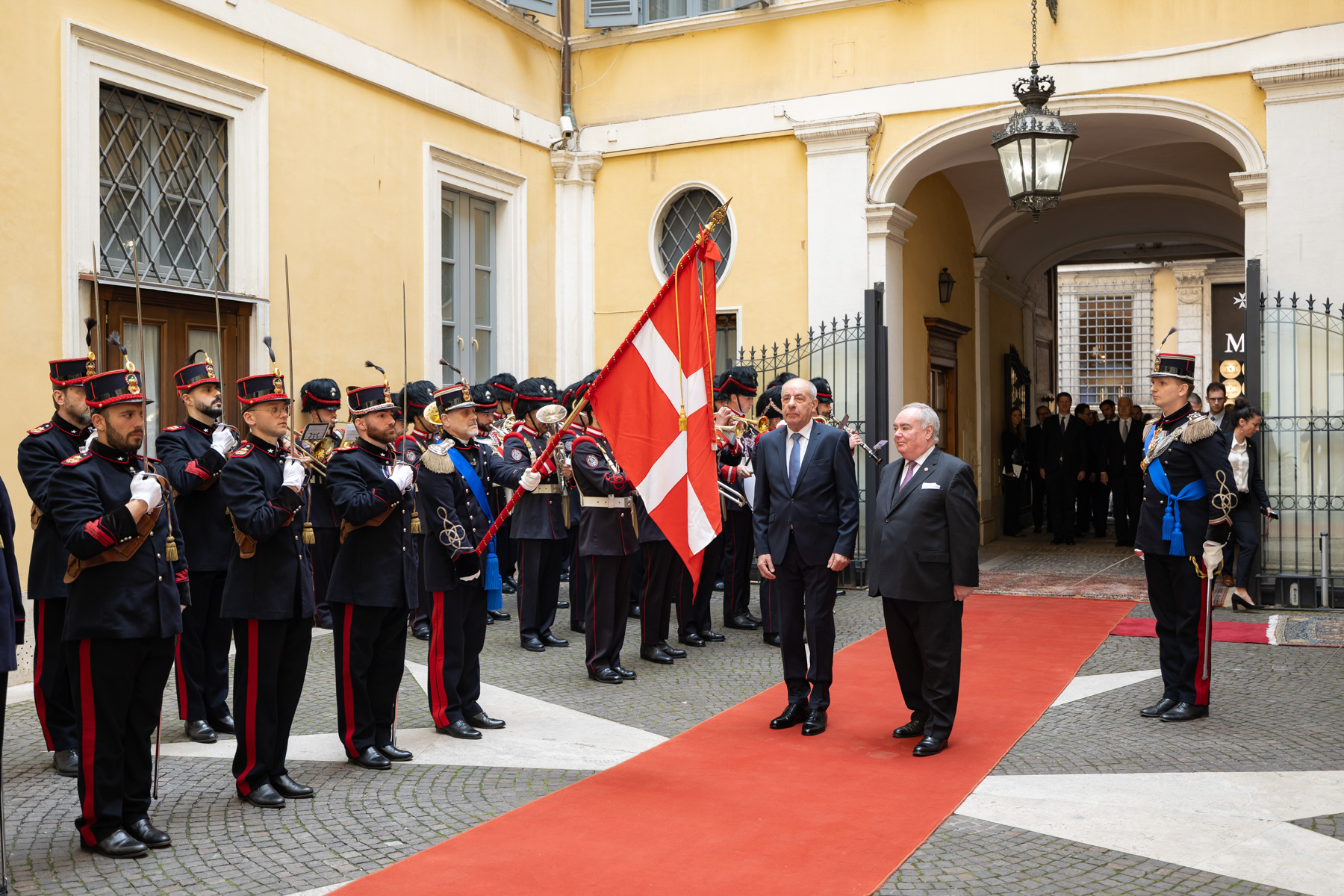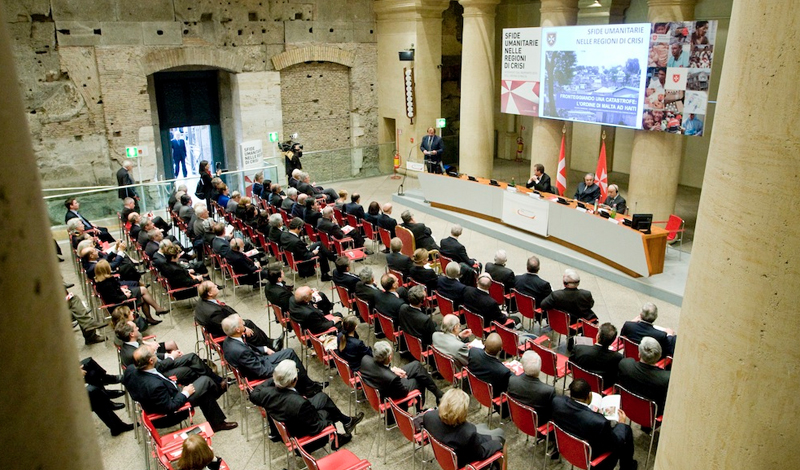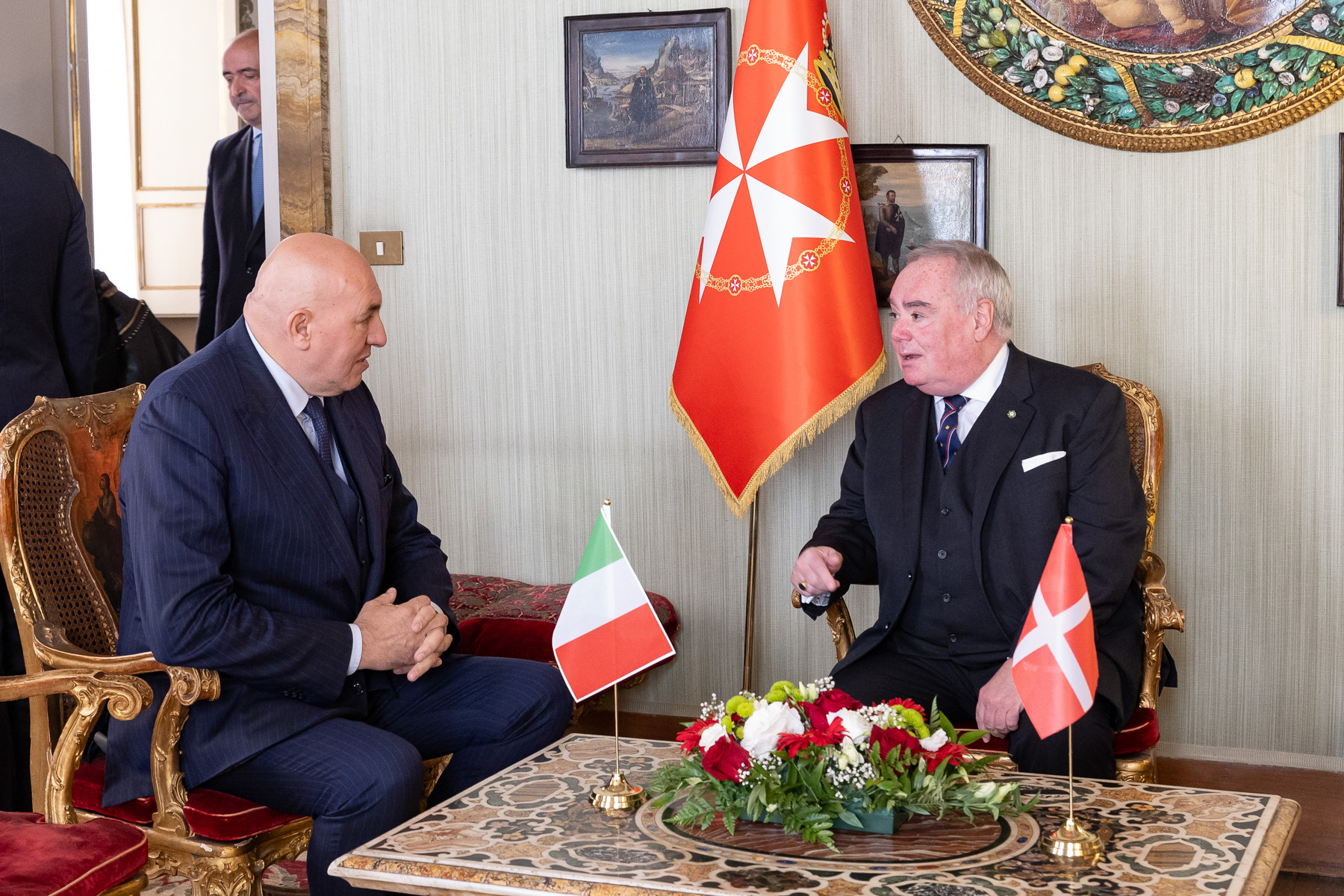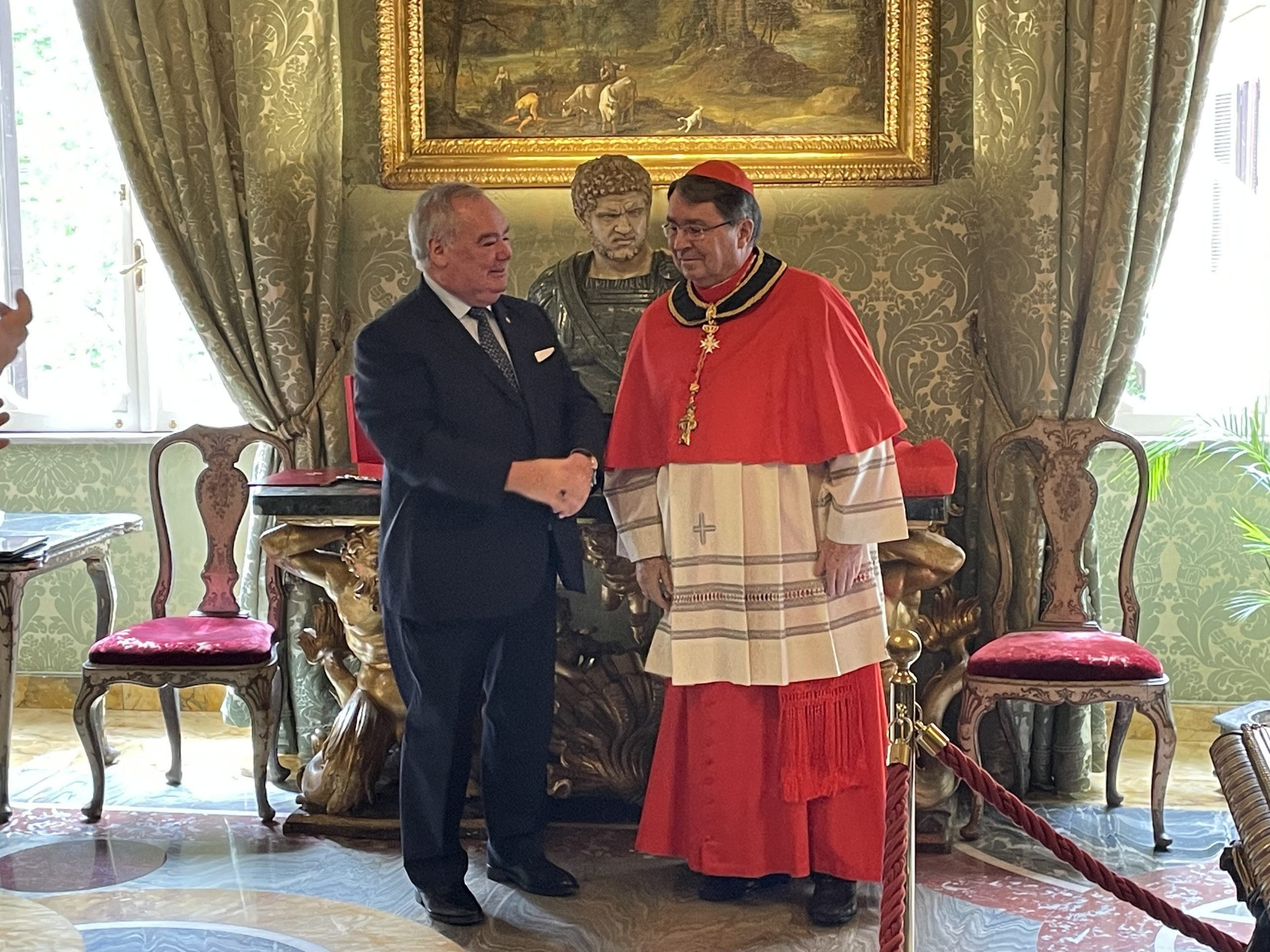The conference organized by the Order of Malta entitled “ Humanitarian Challenges in Crisis-Driven Regions – the Order of Malta’s 2010 Report” took place on 27 October in Rome.
Natural disasters and post-conflict situations are following each other at increasingly short intervals. The conference took stock of the Order of Malta’s humanitarian relief actions in some of the crisis areas worldwide. Haiti and Pakistan – literally brought to their knees by an earthquake and monsoon rains – were cited as well as the Lebanon, a crucial country for the Middle-East peace process.
Two aspects in particular were highlighted. Firstly, the added value of the Order of Malta’s sovereignty, with over 100 ambassadors worldwide practising a distinctive form of humanitarian diplomacy for more efficient and effective aid actions. The second aspect concerns the duration of its humanitarian operations. Whereas many operators leave after the acute emergency stage, the Order of Malta remains with reconstruction programmes and long-term development assistance.
Present at the conference were the Order of Malta’s Grand Master Fra’ Matthew Festing, King Simeon II and Queen Margarita of Bulgaria, some fifty ambassadors from countries with which the Order has diplomatic relations and personalities from Italian institutions. After the address of the Order’s head of diplomacy, Grand Chancellor Jean-Pierre Mazery, the Grand Hospitaller Albrecht von Boeselager presented a comprehensive overview of the Order of Malta’s latest activities, with emphasis on its humanitarian efforts in Pakistan and in the Democratic Republic of the Congo. Mauro Casinghini, National Manager of the Order of Malta’s Italian Relief Corps, described the difficult operations in Haiti after last January’s earthquake and mapped out the Order’s commitments for the next three to five years.
Marwan Sehnaoui, President of the Order of Malta’s Lebanese Association, stressed the medical and welfare assistance offered in the twelve centres the Order manages in his country and the importance of cooperation with the Shiite foundation Imam Sadr.
In conclusion, Grand Master Fra’ Matthew Festing recalled the Order of Malta’s heartfelt appeal to the international community. Addressing the United Nations Security Council, the Order had highlighted the vital issue of the “protection of civilians in armed conflicts”. Especially “in Africa and in Asia civilians are often used as human shields in ‘asymmetric’ struggles’” or become “victims of the systematic use of rape and mutilation as a tactic of choice of militia groups”. Often civilians are victims of indiscriminate bombings or anti-personnel mines. Whereas I hope that this appeal will not fall on deaf ears, concluded the Grand Master, the Order on its part will continue to support the campaign for disarmament and non-proliferation of nuclear weapons and, when governments request it, mediation and negotiation for conflict resolution.










